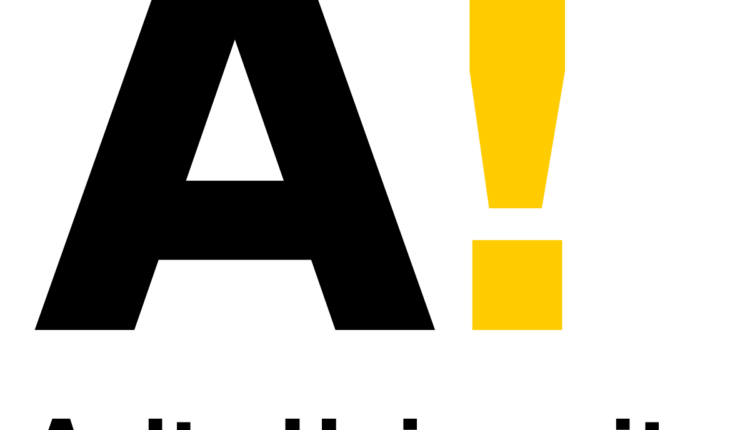Aalto University: Students developed a strategy implementation tool for NGO Startup Refugees
David Derichs, Senior University Lecturer in accounting, teaches one of the largest BSc courses of the school that is the Management Accounting II course (intake of about 200 students per year). To bring theory to life and teach with impact this course revolves around a course project that focuses on developing a strategy implementation tool with the goal of its implementation in a relevant context.
This year, the project was launched together with Startup Refugees. Startup Refugees is a non-governmental organisation (NGO) that was established in 2015 to help refugees, asylum seekers, and other immigrants in finding work and setting up businesses. Currently, Startup Refugees’ network includes more than 1,000 companies, organisations, public sector actors, educational institutions, and individual people.
The task in the project work linked to the course was to analyse the strategy and the overall situation of the organisation and develop a strategy implementation tool, the Balanced Scorecard (an performance management tool that groups different Key Performance Indicators (KPIs) into meaning full categories which support strategy implementation). Students solved this radically creative assignment in groups and produced a report on recommendations for developing the organisation in the future.
Live-case teaching provides effective and engaging learning contexts with impact
Student Tiina-Maija Koskela notes that the management accounting courses are very important because in nearly every job one confronts information and analyses produced to support a company’s decision-making in one way or another. ‘This course and the project work completed with it developed both theoretical knowledge as well as practical skills as a controller or management accountant. I feel that it is useful in every way to be capable of understanding and utilising what was learned in the course, almost regardless of what a person’s own job is.’
Student Samuli Huusko says that although the course was an elective one, he chose it because he knew that courses by David Derichs were of very high quality. ‘I wanted to expand my skills and knowledge, and I felt that in this course I would learn important skills in strategic management.’
Joel Nurminiemi, who was in the same group as Samuli, says that the course was part of his undergraduate studies, in which he majored in accounting, and that the course was a natural continuity of the Management Accounting I course held in the autumn of 2021. ‘I have also heard that the course is a very well-assembled whole in which every participant would undoubtedly get something for themselves.’
Elisa Vepsäläinen, Chief Executive Officer of Startup Refugees, praises the students as excellent and David Derichs was just super, according to her!
‘We got concrete ideas on how to track results and what kind of indicators we could use. In addition, the students had interesting insights into the monitoring and management of our work. We were able to say that we have already thought about the right things and that our strategy opened up well to the students.’
‘It was also really nice to hear that the students liked the project. It created a belief that our work seems relevant to as qualified group of students as this was. In addition, it was nice to see that the employment of refugees and other immigrants, support for entrepreneurship and, of course, work on diversity seemed to be of clear interest to students.’
Educational teamwork, creativity, and an entrepreneurial approach
Tiina-Maija says that it was great to be able to use authentic information of the organization. ‘Motivation was increased also by the fact that the best solutions were presented to the organisation, which means that a report from a project could have real impact on the student’s own career. We students also got a taste of what the work of a consultant could be like, what the management of wholes means, and what kinds of social skills are required in successful teamwork.’
‘I was able to make versatile use of my own skills, and we noticed how diversity is beneficial in group work. In addition to the knowledge of management accounting that we learned in the course, the project work required the harnessing of creativity and an entrepreneurial approach,’ Tiina-Maija says.
Samuli and Joel were also happy that they got to apply the theory to practice. ‘During the project we also experienced what it was like to work for shared goals with people of very different personalities. We learned in practice how the quality of the analysis of a report was of central importance when the analysis is evaluated. Adequate consideration to detail adds to the reliability of analysis and to the development of ideas. In addition, the peer review at the end of the project enabled learning from others and their views on the same project.’
However, things do not always go according to plan when working with live cases and real organizations. In this case, the current pandemic significantly decreased the organization’s capacity to perform live during the course, which usually provides an additional benefit. Samuli noted that ‘It was a bit unfortunate that no one from the organisation was able to participate in our lectures and discussions that we had. We would have liked to ask them plenty of questions. Fortunately, David had answers to many of the things that we had pondered at the weekly lectures held online.’
All three students recommend the course to all who are interested in management accounting and strategic management. ‘A theory is best learned when it is possible to start applying it to practice immediately, and what is best: Aalto unites people who are enthusiastic and very motivated about learning, regardless of their degree or major!’

